Agents in Artificial Intelligence Artificial intelligence is defined as the study of rational agents A rational agent could be anything that makes decisions, as a person, firm, machine, or software It carries out an action with the best outcome after considering past and current percepts (agent's perceptual inputs at a given instance) An AI system is composed of an agent Simple Reflex Agent ModelBased Reflex Agent GoalBased Agents UtilityBased Agent Learning Agent Simple Reflex Agent These agents take decisions supported the present percepts and ignore the remainder of the percept history These agents only achieve a fully observable environment3 Goal – based agents 4 Utility – based agents 1 Simple reflex agents These agents select actions on the basis of the current percept, ignoring the rest of the percept history Example The vacum agent whose agent function is tabulated in figure (3) is a simple reflex agent, because its decision is based only on the current location

Intelligent Agents In Games Review With An Open Source Tool Sciencedirect
Reflex and goal-based agents - making decisions
Reflex and goal-based agents - making decisions-0433 GoalBased Agent Correct action depends upon what the agent is trying to accomplish Agents knowledge (model) Current state (percepts) What it is trying to achieve (goals) Select actions that will accomplish goals Often need to do search and planning to determine which action to take in a given situationAlthough the goalbased agent does a lot more work that the reflex agent this makes it much more flexible because the knowledge used for decision making is




Intelligent Agents In A I Laptrinhx
It is the ability to make one's own decisions based on selflearning In AI, it is the agent's property of making decisions on its own where their own experience determines the behavior Reflex Agent It is an agent whose actions are based on its current percept They ignore the past perception and function on the current state ModelBased Agent It is the agent that uses theReflex, model based, goal based, and utility agent Simple Reflex agents can be programmed using ifelse rules where the consequent can be a single statement or function that embodies a behavior Intrinsic to this agent is that there are no set goals, and previous states are not remembered A model based agent knows its previous state but stillModelbased Reflex Agents 22 Goalbased Agents •Goal information guides agent's actions (looks to the future) •Sometimes achieving goal is simple eg from a single action •Other times, goal requires reasoning about long sequences of actions •Flexible simply reprogram the agent by changing goals 23 Goalbased Agents 24 Utililtybased
Agent Types Four basic types in order of increasing generalization 1 Simple reflex agents 2 Reflex agents with state/model 3 Goalbased agents 4 Utilitybased agents Goalbased agents act in order to achieve their goal(s) Utilitybased agents maximize their own utility function What is simple reflex agent in artificial intelligence?A modelbased reflex agent is an intelligent agent that uses percept history and internal memory to make decisions about the ''model'' of the world around it Also Know, what is goal based agent?
Reinforcement learning is often explained with the term "agent" in the loop The agents stands for the module of the system who takes the decision The policy of the agent is equal to the decision making process In the easiest form a policy looks similar to a behavior tree Other policies are defined with qtable (qlearning) which is an ifthenmatrix If a certain state isUtilitybased agent Modelbased agent Goalbased Agent Learning Agent Hide Answer Workspace Answer aIntelligent Agents Intelligent Agent Agent entity in a program or environment capable of generating action An agent uses perception of the environment to make decisions about actions to take The perception capability is usually called a sensor The actions can depend on the most recent perception or on the entire history (percept sequence)




Structural And Behavioural Characteristics For Mas Ml And Mas Ml 2 0 Agents Download Table
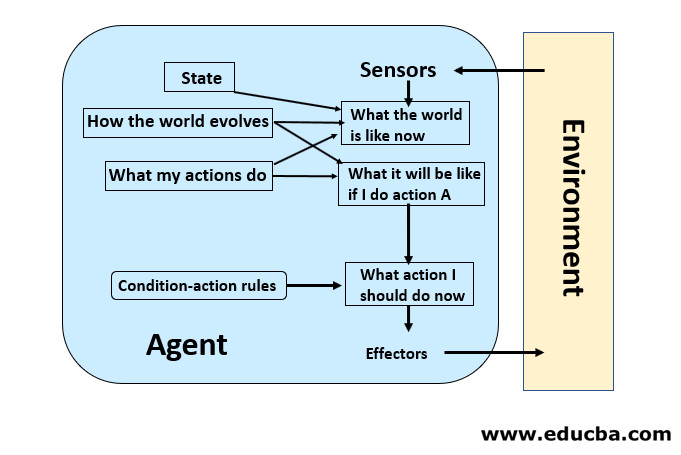



Agents In Artificial Intelligence Understanding How Agents Should Act
A modelbased reflex agent should maintain some sort of internal model that depends on the percept history and thereby reflects at least some of the unobserved aspects of the current state Percept history and impact of action on the environment can be determined by using internal model It then chooses an action in the same way as reflex agent An agent may also use models to Goalbased agents and Utilitybased agents has many advantage in terms of flexibility and learning Utility agents make rational decisions when goals are inadequate 1) The utility function specifies the appropriate trade off 2) Utility provides likelihood of success can be weighted against the importance of the goals Utilitybased agents • In two kinds of cases, goals are inadequate but a utilitybased agent can still make rational decisions • First, when there are conflicting goals, only some of which can be achieved (for example, speed and safety), the utility function specifies the appropriate tradeoff • Second, when there are several goals that




Artificial Intelligence And Hrm Hr Analytics Path




Innovation Memes Goal Based Agents
A Goal Based Agent takes decisions based on how far they are currently from reaching their goals A goal is nothing but the description of a desirable situation Every agent intends to reduce their distance from the goal This allows the agent an option to choose from multiple possibilities for selecting the best route in order to reach the goal state• Agent program The agent program implements the agent function • Rationality Rationality is the property of an agent that chooses action to be performed • Autonomy Autonomy is a property of an agent being itself and making decisions of its own • Reflex agent A reflex agent is an agent which selects actions on the basis of current perceptThe current decision presented to the agent could affect all future decisions Dynamic Environment An environment that can change while the agent is thinking Modelbased reflex agents 3) Goalbased agents 4) Utilitybased agents The simplest kind of agent is the _____ Simple Reflex Agent




Model Based Agents Definition Interactions Examples Video Lesson Transcript Study Com
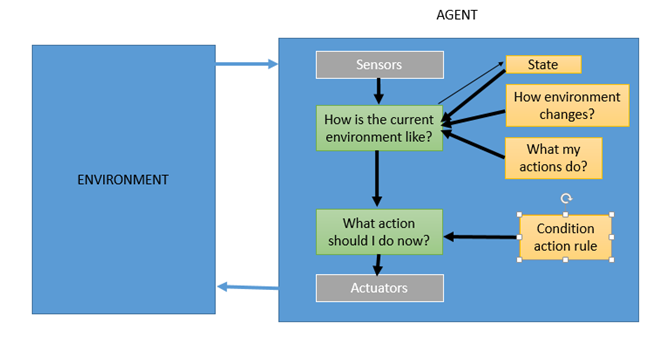



Types Of Agents In Artificial Intelligence
GoalBased Agents Previously we discussed ModelBased Reflex Agents as a way to design simple enemies We considered a very simple behavior of the AI enemy which can be stated in the form of following conditionaction rules If patrolling and no enemy in sight then Patrol predefined path If patrolling and enemy in sight, switch mode fromIn artificial intelligence, a simple reflex agent is a type of intelligent agent that performs actions based solely on the current situation, with an intelligent agent generally being one that perceives its Simple reflex agents act only on the basis of the current percept, ignoring the rest of the percept history The agent function is based on the conditionaction rule 'if condition, then action' This agent function only succeeds when the environment is fully observable
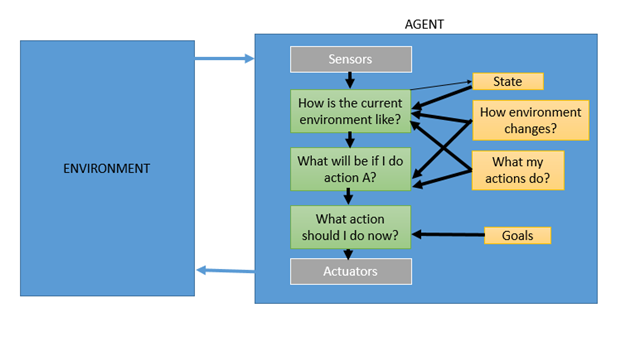



Types Of Agents In Artificial Intelligence
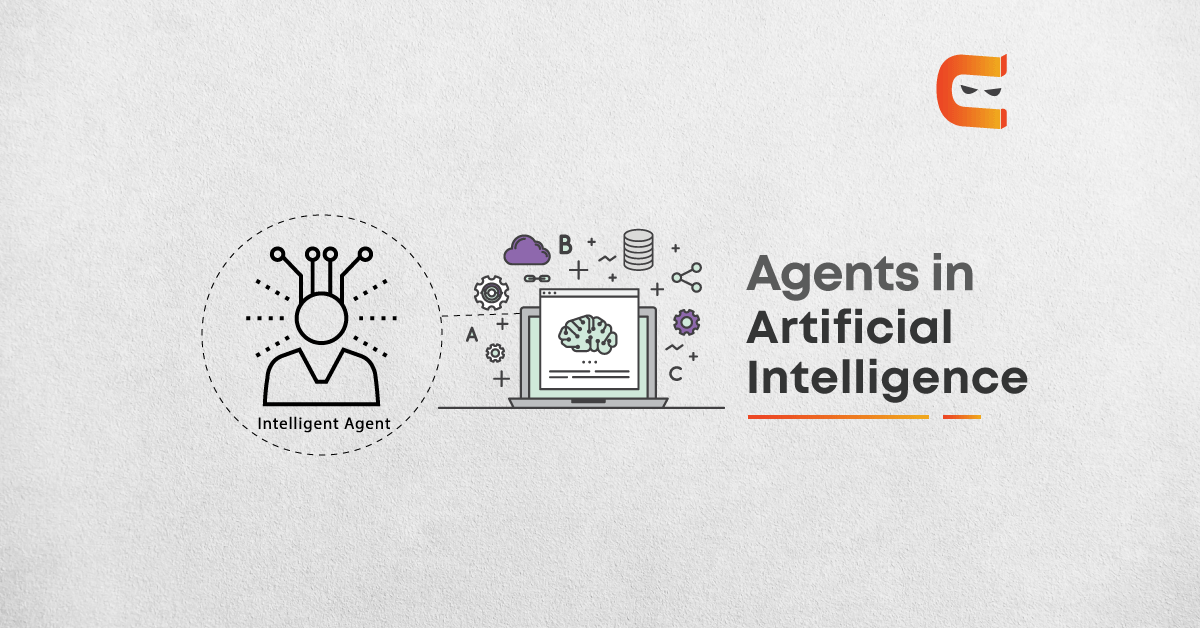



Agents In Artificial Intelligence Coding Ninjas Blog
It ignores the rest of history; 1Simple reflex agents The simplest kind of agent is the simple reflex agent It responds directly to percepts ie these agent select actions on the basis of the current percept, ignoring the rest of the percept history An agent describes about how the condition action rules allow the agent to make the connection from percept to action Condition action rule ifUtilitybased Agents Definition, Interactions & Decision Making Goalbased Agents Definition & Examples Simple Reflex Agents Definition, Uses & Examples Decision Making Without
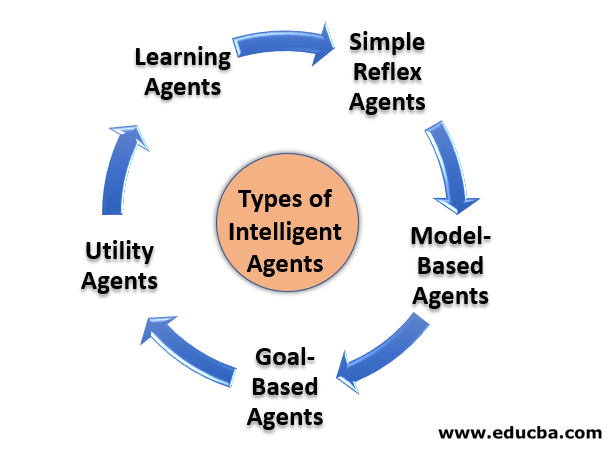



Intelligent Agents Laptrinhx
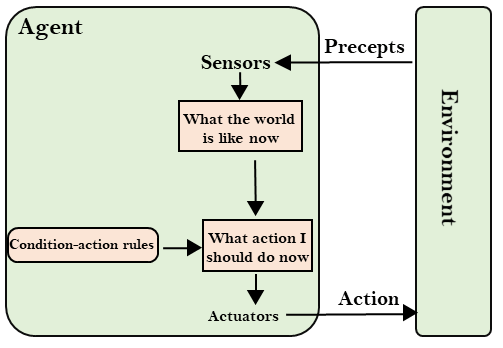



Types Of Ai Agents Javatpoint
Static the environment does not change as the agent makes the decision Simple reflex agents Reflex agents with state Goalbased agents Utilitybased agents Simple reflex agent These agents collect current perceptions through sensors, and then based on that, with a set of conditionaction rules, execute the actions through actuatorsA simplex reflex agent takes actions based on current situational experiences For example, if you set your smart bulb to turn on at some given time, let's say at 9 pm, the bulb won't recognize how the time is longer simply because that's the rule defined it followsAgent Frameworks GoalBased Agents 1 Agent Sensors Effectors Goals What action I should do now Environment State How world evolves What my actions do What world is like now What it will be like if I do action A Agent Frameworks GoalBased Agents 2 Implementation and Properties • Instantiation of generic skeleton agent Figure 211
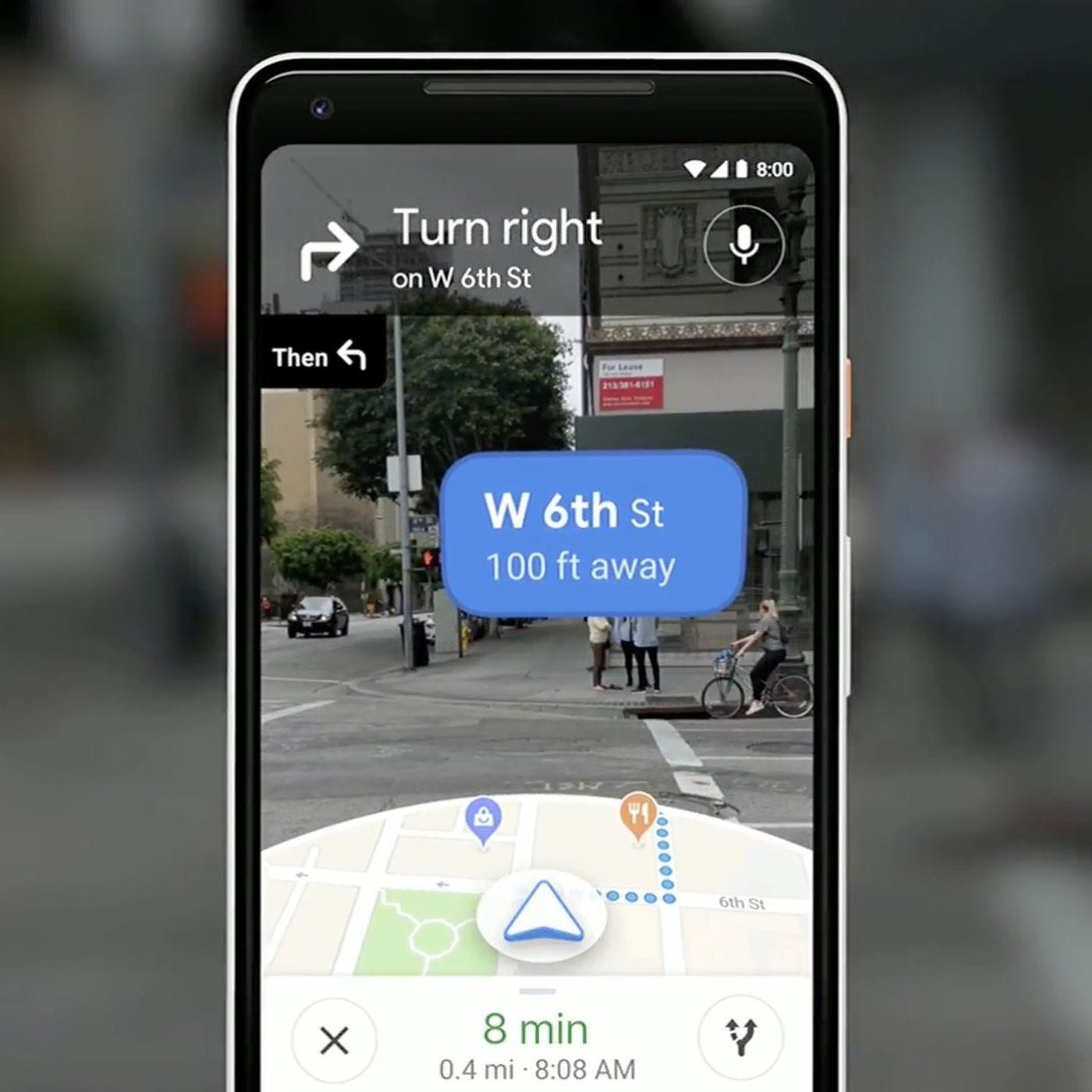



Understanding Artificial Intelligence Environments And Agents By Panth Bhavsar Medium
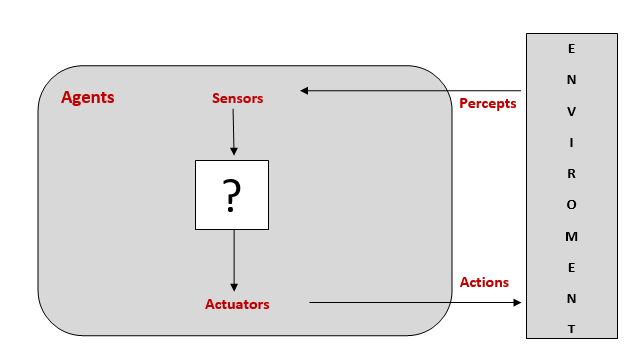



Intelligent Agents Agents In Ai Tutorial And Example
A Simple Reflex Agent is typically employed when all the information of the current game state is directly observable, (eg Chess, Checkers, Tic Tac Toe, ConnectFour) and the decision regarding the move only depends on the current state That is, when the agent does not need to remember any information of the past state to make a decisionModelbased reflex agents represents the current state based on history Goalbased agents They are proactive agents and works on planning and searching Utilitybased agents Have extra component of utility measurement over goalbased agent;A rational agent is an agent that for every situation selects the action the maximizes its expected performance based on its perception and builtin knowledge Definition depends on – Performance measure (success criterion) – Agent's percept sequence to date – Actions that the agent can perform – Agent's knowledge of the environment This means that an agent can be




What Is An Utility Based Agent In Ai The Polymath Blog
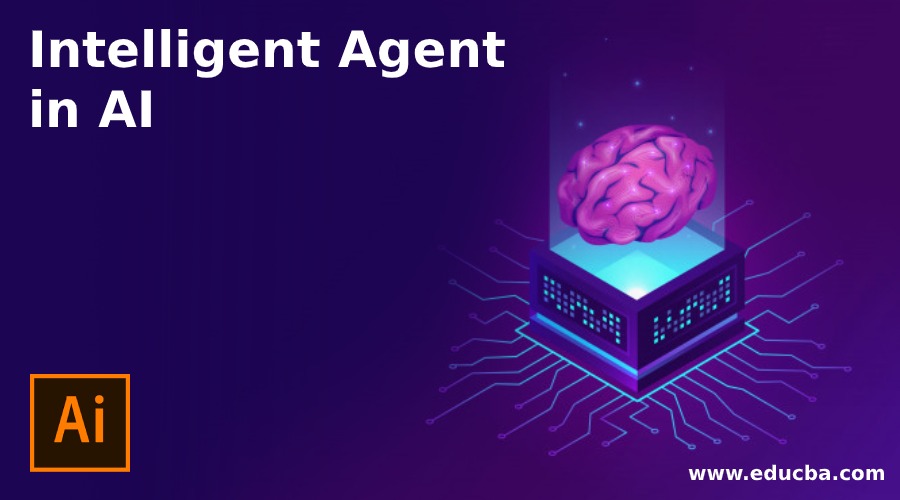



Intelligent Agent In Ai Guide To What Is The Intelligent Agent In Ai
Hence it follows the Conditionaction rule 15) Which agent deals with the happy and unhappy state?Goal Based Reflex Agent # Artificial Intelligence Online Course Lecture 6In artificial intelligence, an intelligent agent (IA) is anything which perceives its environment, takes actions autonomously in order to achieve goals, and may improve its performance with learning or may use knowledgeThey may be simple or complex — a thermostat is considered an example of an intelligent agent, as is a human being, as is any system that meets the definition, such as a firm



Robotics Cs Tamu Edu




Intelligent Agents N Agent Anything That Can Be
Utilitybased agent Explanation Utilitybased agent uses an extra component of utility that provides a measure of success at a given state It decides that how efficient that state to achieve the goal, which specifies the happiness of the agent Types of agents Based on the way an agent handles a request or takes an action upon perceiving its environment, intelligent agents can be classified into four categories Simple reflex agents Agents keeping track of the World Goal based agents Utility based agents We shall discuss each one of them in brief details Simple reflex agents Explanation The simple reflex agent takes decisions only on the current condition and acts accordingly;
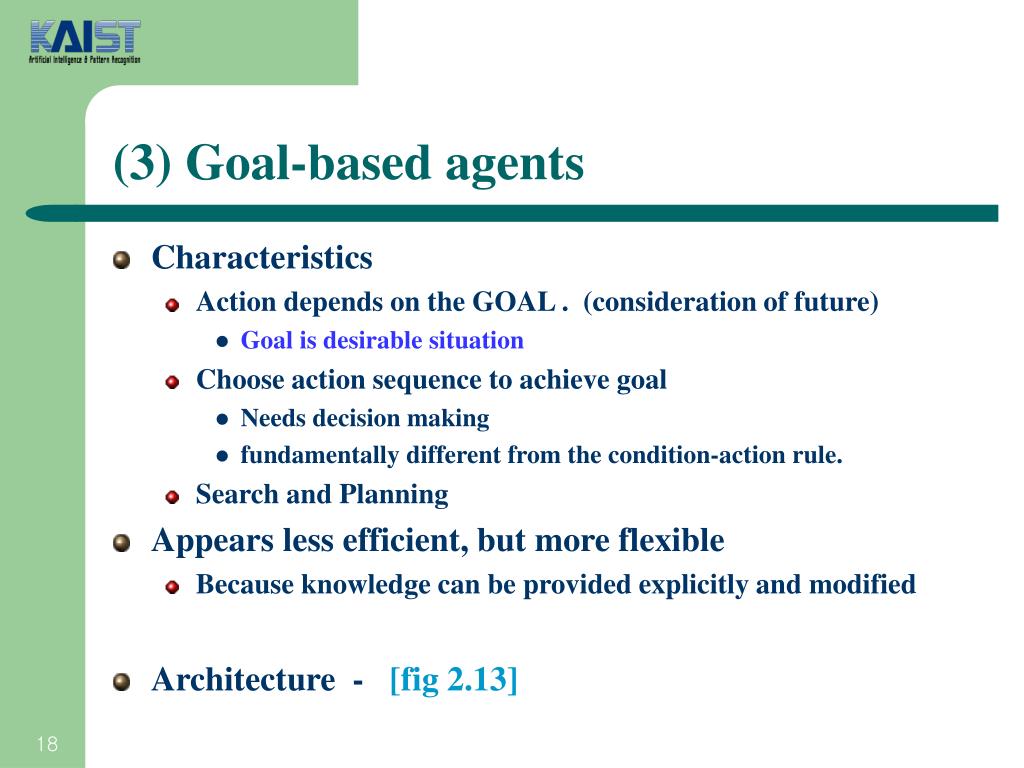



Ppt Intelligent Agent Powerpoint Presentation Free Download Id




Agents In Artificial Intelligence Geeksforgeeks
• The ability to make decisions then chooses an action in the same way as the reflex agent Goalbased agents Goalbased agents further expand on the capabilities of the modelbased agents, by using "goal" information Goal information describes situations that are desirable This allows the agent a wayGoal based agent is one which choose its actions in order to achieve goals It is a problem solving agent and is more flexible than model reflex agentGoal based agent consider the future actions(table lookup, simple reflex, goalbased, or utilitybased) Give a detailed explanation and justification of your choice The patterns that the agent uses are matched against sets of events that occur over time Therefore, the agent needs to maintain knowledge of the past, and, thus, cannot be either a table lookup or simple reflex agent




Artificial Intelligence Tutorial 26 Goal Based Agent Youtube



Web Cs Hacettepe Edu Tr
At other times, however, the agent must consider also search and planning Decision making of this latter kind involves consideration of the future Goal based agents are commonly more flexible than reflex agentsOccasionally , goal based action selection is straightforward (eg follow the acti on that leads directly to the goal);The reflex agent brakes when it sees brake lights A goalbased agent, in principle, could reason that if the car in front has its brake lights on, it will slow down From the way the world usually evolves, the only action that will achieve the goal of not hitting other cars is to brake
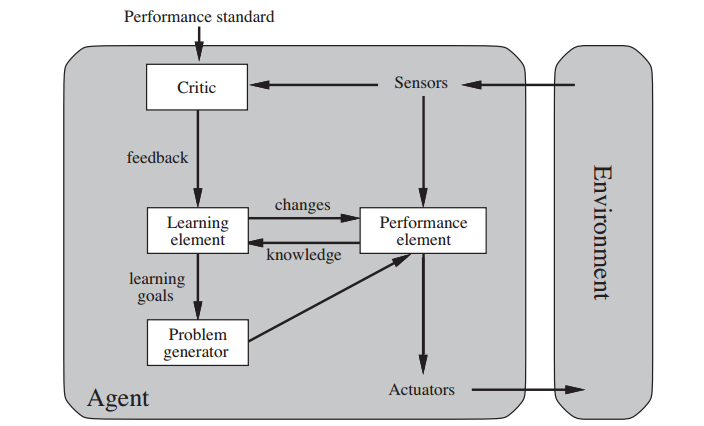



Agents And Environment Part 2 Structure Of Agents By Rithesh K Kredo Ai Engineering Medium



John Cs Olemiss Edu
Learning agent able to learn and adapt the new decisionmaking capabilities based on experience 1Goalbased agents are better because we need to think about future and make good decisions) Uses a model of how the world evolves in response to actions Hence Act on how the world w ould be A kind of Goalbased Agents are Utilitybased Agents Trade off multiple goals (try to maximize the utility function)From the simplest to the most sophisticated intelligent actions, almost all intelligent systems are based on one or several of the following agent programs simple reflex agents, modelbased reflex agents, goalbased agents, utilitybased agents and learning agents Simple reflex agentsthis program constitute the basic algorithm needed to initiate some action The example




Intelligent Agents 2 The Structure Of Agents 2 3 Structure Of An Intelligent Agent 1 Till Now We Are Talking About The Agents Behavior But How Ppt Download




Goal Based Agents Definition Examples Video Lesson Transcript Study Com
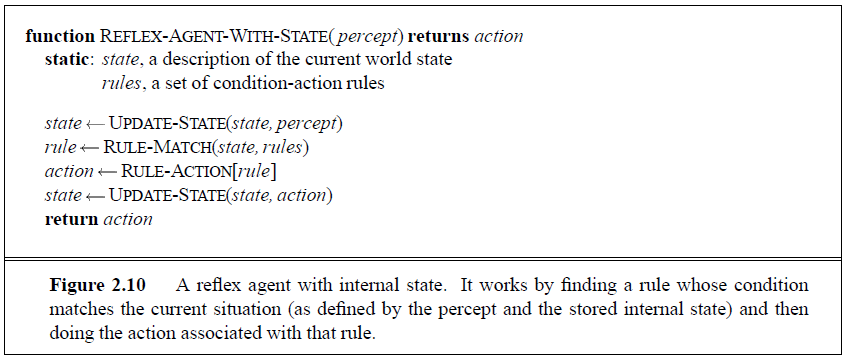



Goal Based Agents




Plans For Today N N N Chapter 2
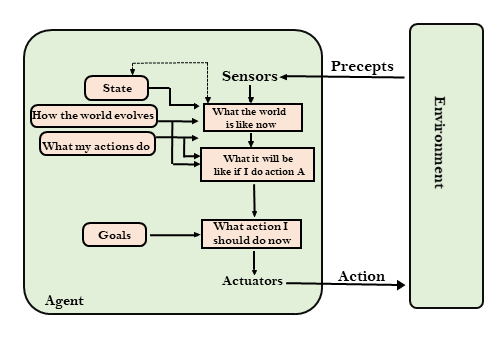



Types Of Ai Agents Javatpoint
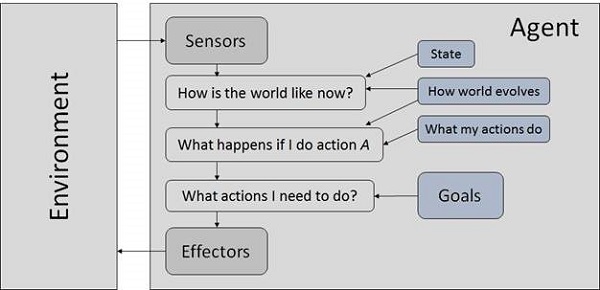



Ai Agents Environments




Intelligent Agents In Games Review With An Open Source Tool Sciencedirect




Agents In Artificial Intelligence Geeksforgeeks
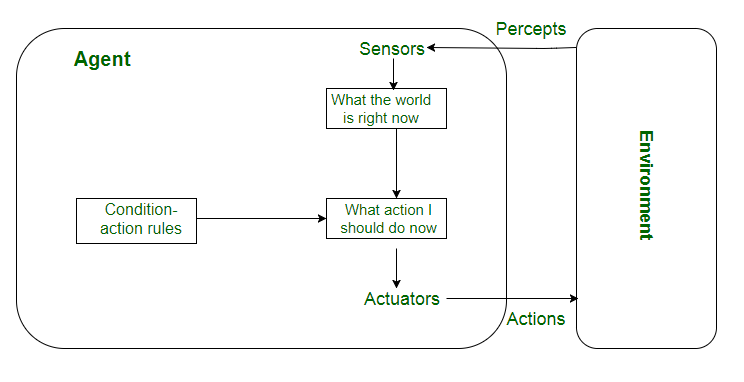



Agents In Artificial Intelligence Geeksforgeeks



1




Types Of Agents In Artificial Intelligence Skilllx



John Cs Olemiss Edu



Goal Based
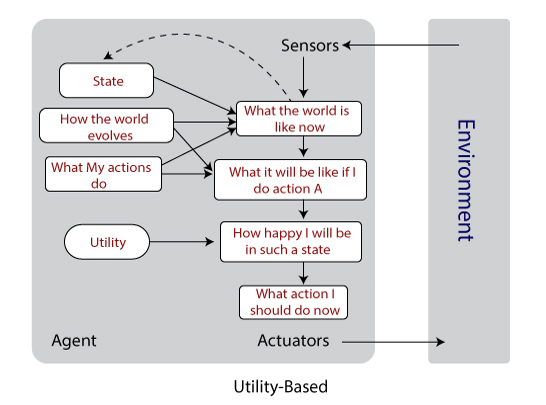



Intelligent Agents Agents In Ai Tutorial And Example
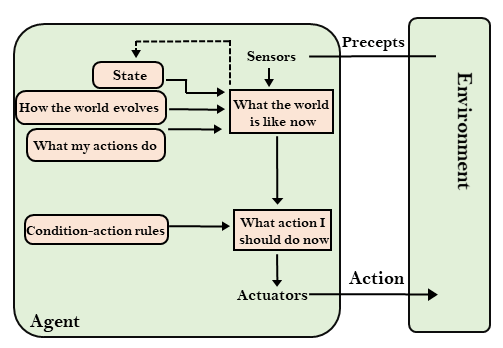



Types Of Ai Agents Javatpoint




Section 02




Chapter 2 Intelligent Agent Agents An
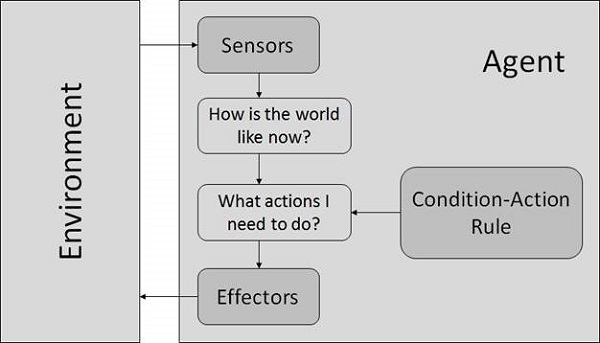



Ai Agents Environments




Quiz Worksheet Goal Based Agents Study Com
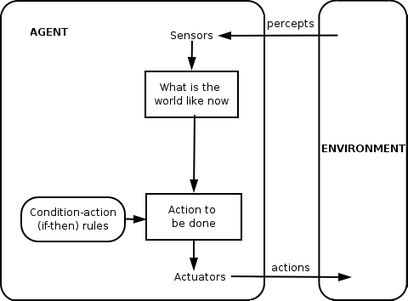



Intelligent Agent Wikipedia




Agents In Artificial Intelligence Geeksforgeeks




Intelligent Agents 2 The Structure Of Agents 2 3 Structure Of An Intelligent Agent 1 Till Now We Are Talking About The Agents Behavior But How Ppt Download




Explain In Detail At Least Three Main Differences Between The Goal Based Agent And The Utility Agent Study Com




Utility Based Agents Definition Interactions Decision Making Video Lesson Transcript Study Com
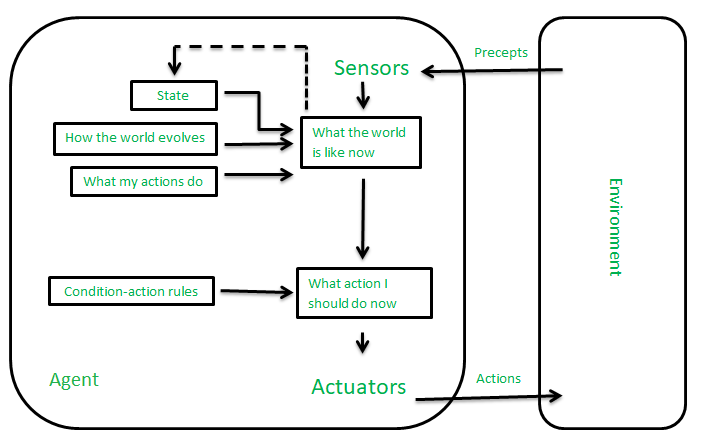



Agents In Artificial Intelligence Geeksforgeeks




Section 02




Agents In Artificial Intelligence Coding Ninjas Blog




Intelligent Agents 2 The Structure Of Agents 2 3 Structure Of An Intelligent Agent 1 Till Now We Are Talking About The Agents Behavior But How Ppt Download
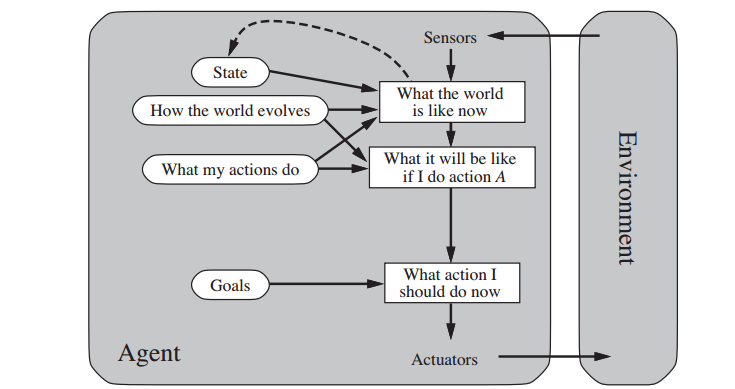



Agents And Environment Part 2 Structure Of Agents By Rithesh K Kredo Ai Engineering Medium




Agents And Environment Part 2 Structure Of Agents By Rithesh K Kredo Ai Engineering Medium




Intelligent Agents In Artificial Intelligence Engineering Education Enged Program Section




Goal Based Agents In Artificial Intelligence With Real Life Examples In Hindi Youtube




Chapter 2 Intelligent Agent Agents An
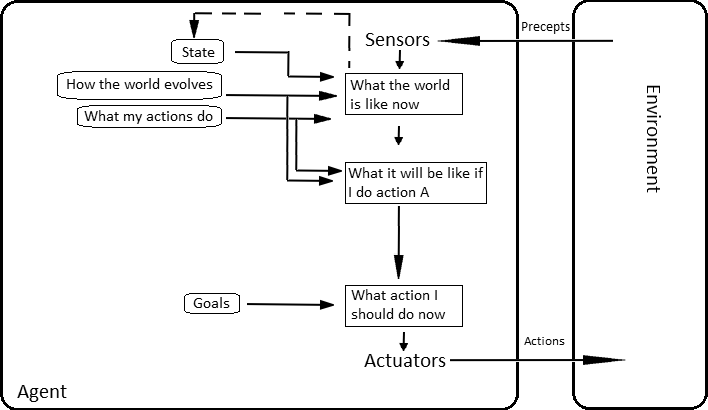



Intelligent Agent Wikiwand




Section 02
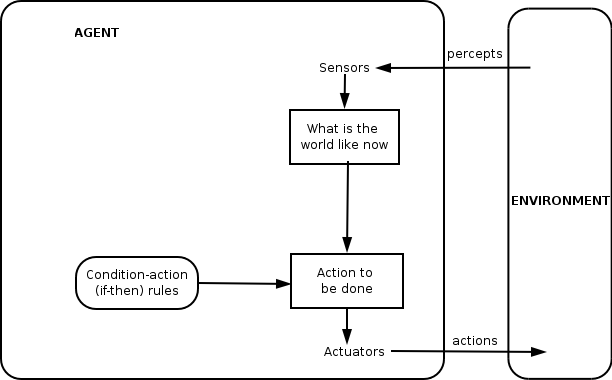



Intelligent Agents Psychology Wiki Fandom




Agent Based Approaches For Adaptive Building Hvac System Control Semantic Scholar
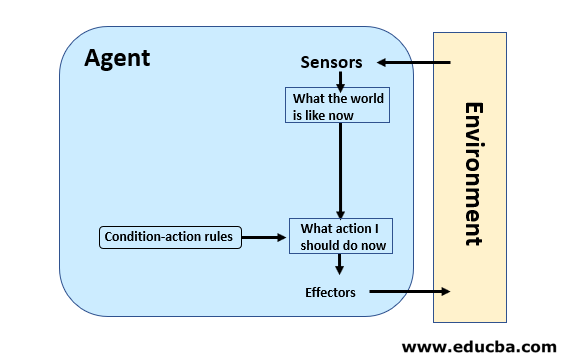



Agents In Artificial Intelligence Understanding How Agents Should Act




Intelligent Agents In A I Laptrinhx




Intelligent Agent Wikipedia
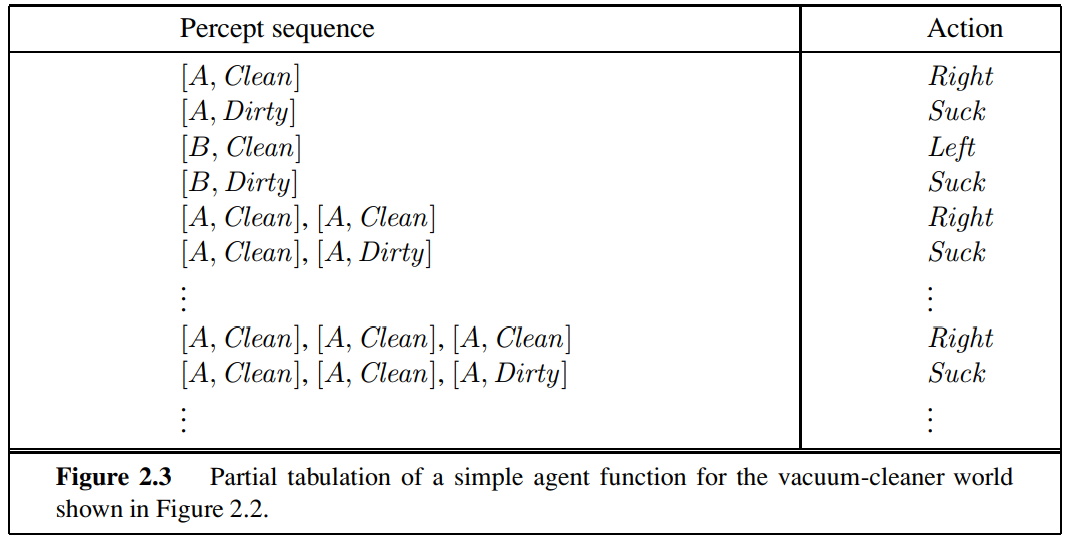



Intelligent Agent Aima Exercises




Agents In Artificial Intelligence Coding Ninjas Blog
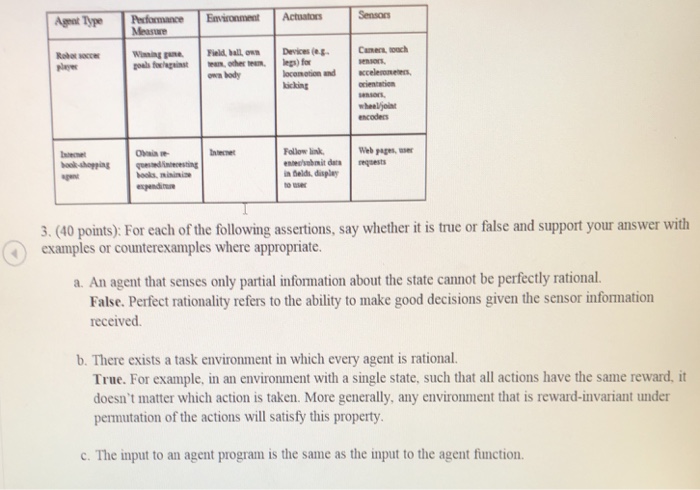



Solved Solutions 1 10 Points What Is The Difference Chegg Com



Cs Bham Ac Uk



John Cs Olemiss Edu
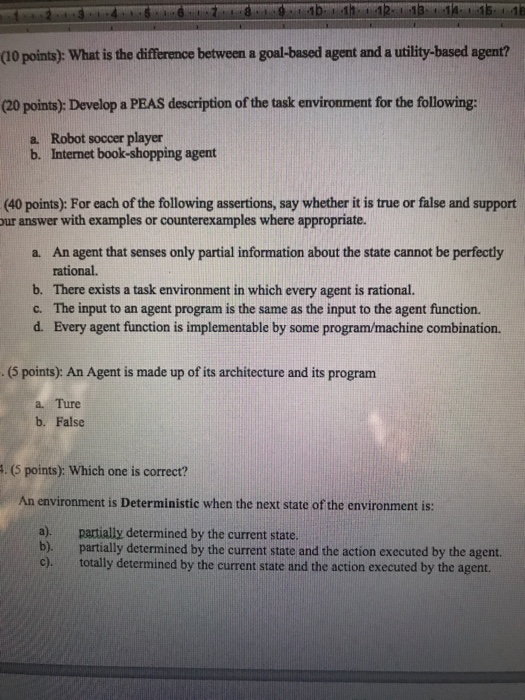



Solved 10 Points What Is The Difference Between A Chegg Com




Intelligent Agent Wikipedia




Chapter 2 Intelligent Agents Chapter 2 Intelligent Agents



1



Mrcet Com




Copy Of 2 Goal Based Agent Edited Goal Based Agent What Is A Goal Based Agent Expansion Of Studocu
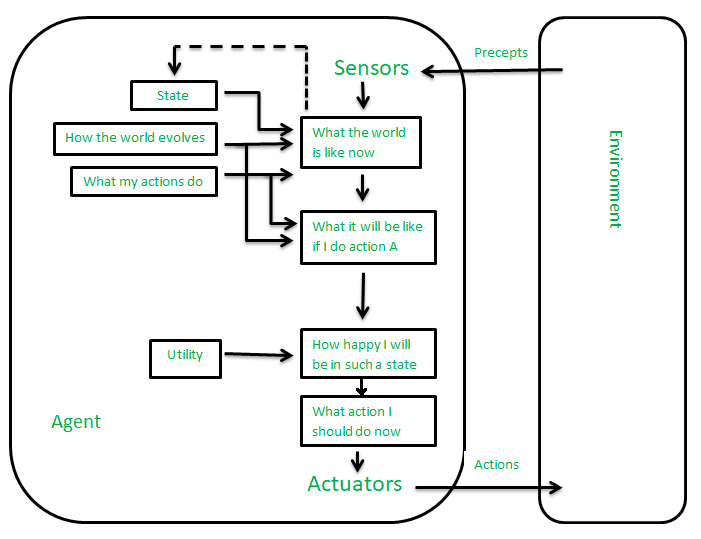



Agents In Artificial Intelligence Geeksforgeeks




Section 02
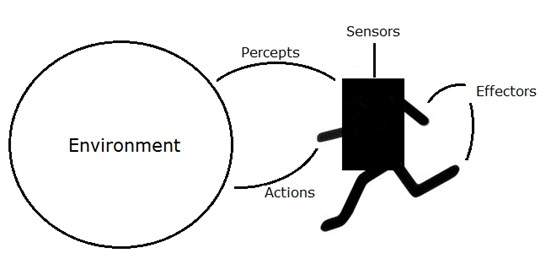



Ai Agents Environments




Analysis Of Intelligent Agents In Artificial Intelligence Iiec Business School
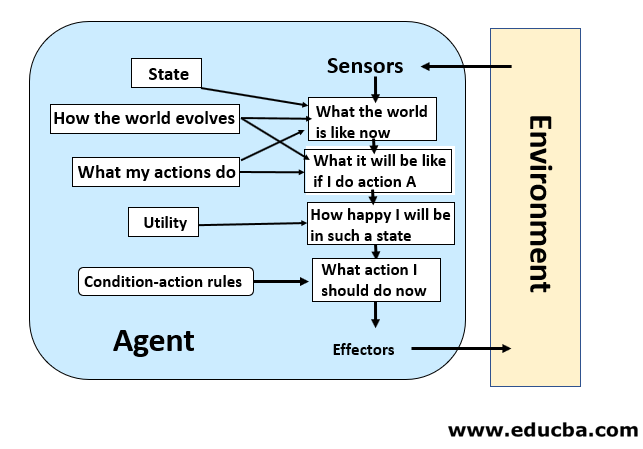



Agents In Artificial Intelligence Understanding How Agents Should Act
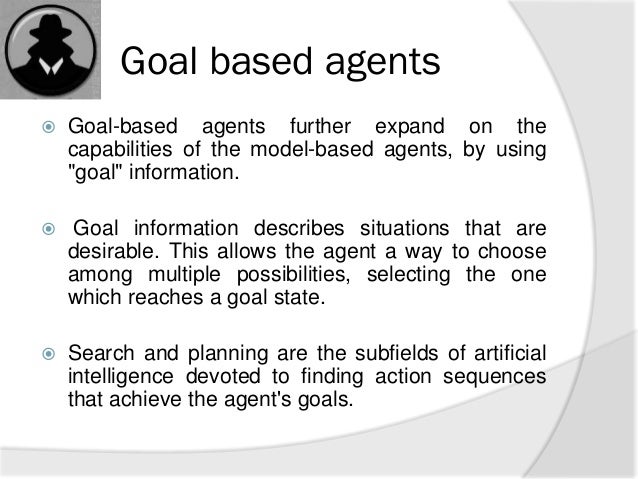



Intelligent Agent
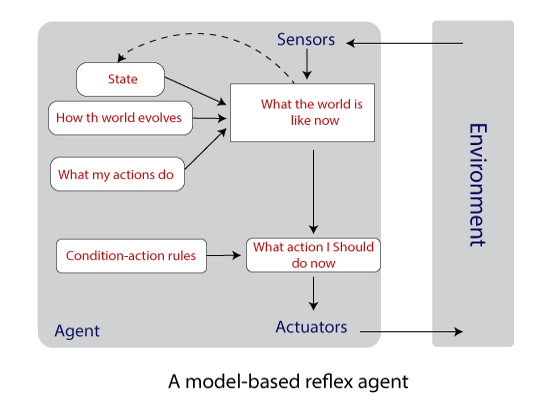



Intelligent Agents Agents In Ai Tutorial And Example




Goal Based Agents Pathfinding




Intelligent Agents 2 The Structure Of Agents 2 3 Structure Of An Intelligent Agent 1 Till Now We Are Talking About The Agents Behavior But How Ppt Download



Types Of Agents In Artificial Intelligence Skilllx
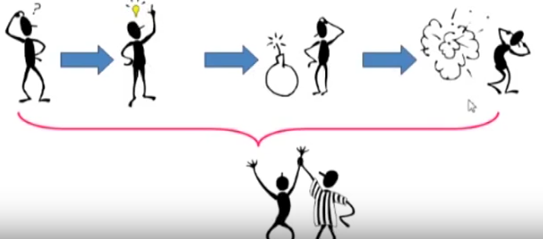



Importance Of Intelligent Agents In Ai Tanuka S Blog
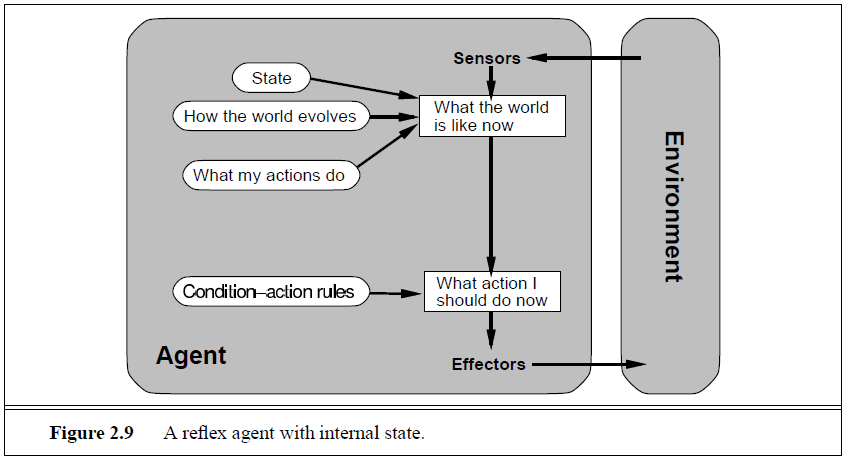



Goal Based Agents




Seg 4560 Computational Intelligence For Decision Making Chapter
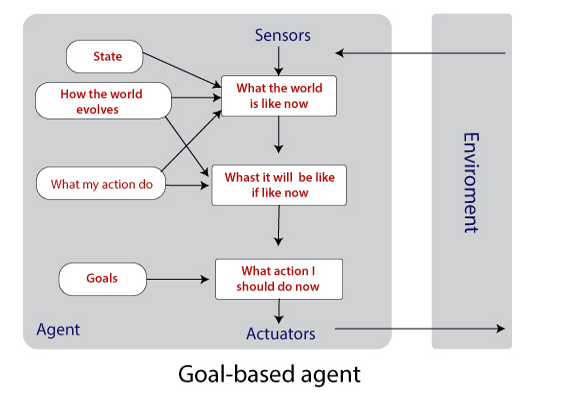



Intelligent Agents Agents In Ai Tutorial And Example




A I Midterm Ch 1 Flashcards Quizlet



1




Intelligent Agents 2 The Structure Of Agents 2 3 Structure Of An Intelligent Agent 1 Till Now We Are Talking About The Agents Behavior But How Ppt Download




Types Of Agents In Artificial Intelligence Skilllx
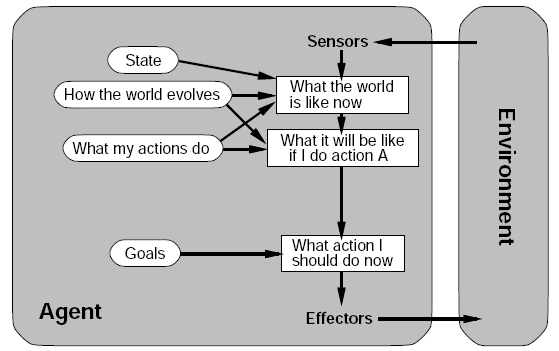



Topics In Ai Agents




Ai Agents Environments
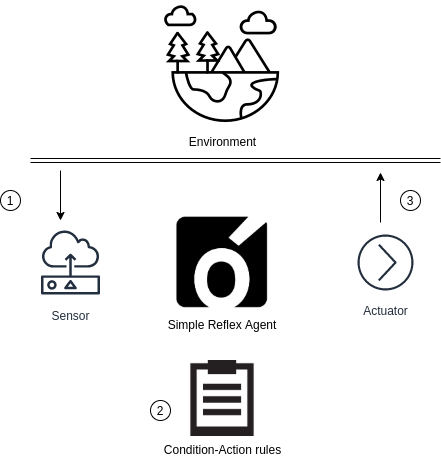



Ai Right Structure Of Agents For Your Business Knoldus Blogs




What Is An Utility Based Agent In Ai The Polymath Blog
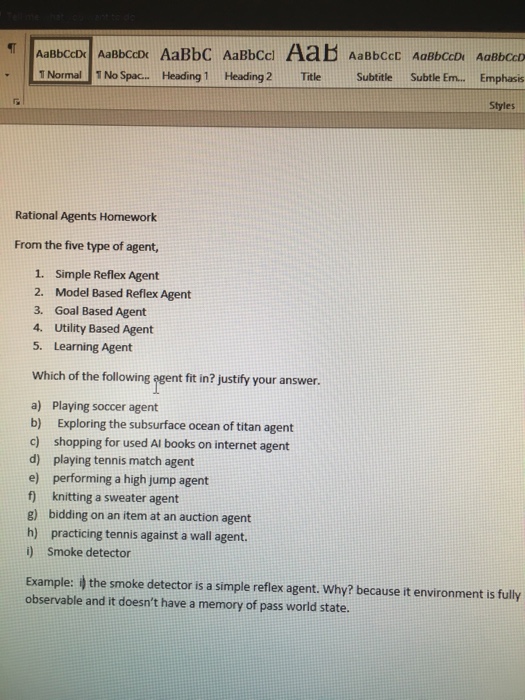



Solved From The Five Type Of Agent Simple Reflex Agent Chegg Com




Artificial Intelligence Designing Agents By Aditya Kumar Datadriveninvestor
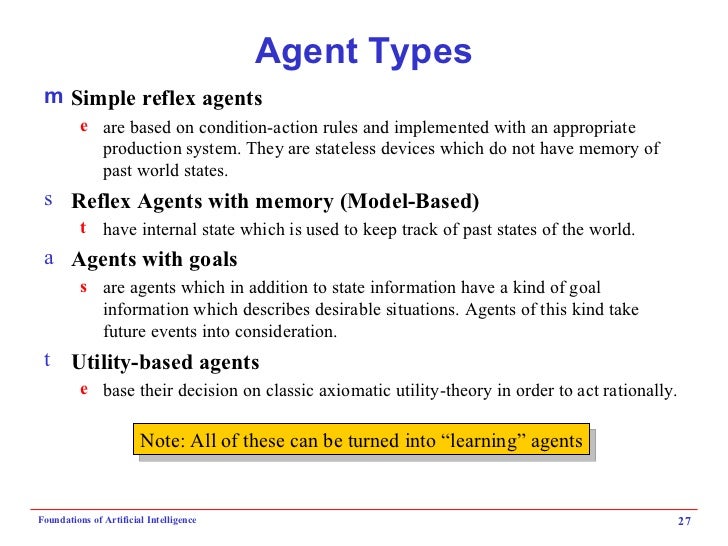



Lecture1
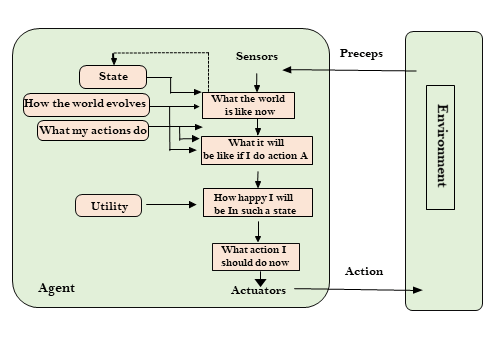



Types Of Ai Agents Javatpoint




Section 02




Chapter 2 Intelligent Agents Cs 362 Slide 1




Artificial Intelligence In Game Design Intelligent Decision Making And Decision Trees Ppt Download




Seg 4560 Computational Intelligence For Decision Making Chapter
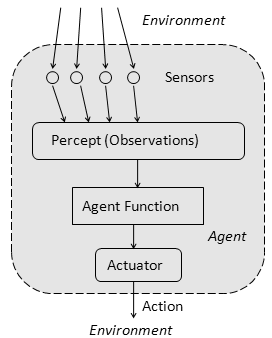



Agents



0 件のコメント:
コメントを投稿